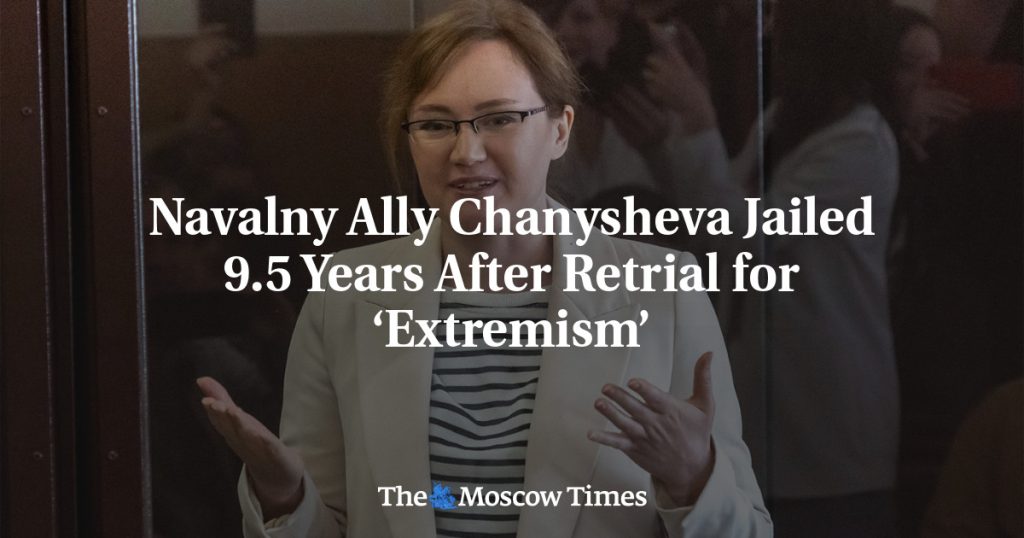A court in Russia’s Bashkortostan sentenced Lilia Chanysheva, the former regional coordinator of Alexei Navalny’s opposition movement, to nine-and-a-half years in prison on “extremism” charges. Chanysheva was the first of Navalny’s associates to be arrested on such charges in November 2021. Most of Navalny’s key aides have fled Russia, leaving Chanysheva to face the legal system alone. She had headed Navalny’s political office in Ufa until it was disbanded in 2021 when the authorities labeled Navalny’s activist network as extremist. The criminal case against Chanysheva is viewed by her and her allies as politically motivated.
In June of last year, an Ufa court sentenced Chanysheva to seven-and-a-half years in prison for creating an extremist organization. Her supporters believe the charges against her are unjust and part of a broader crackdown on opposition figures in Russia. In March, the case was sent to the Supreme Court of Bashkortostan after prosecutors appealed the sentence and requested that Chanysheva be jailed for 10 years. On Tuesday, the Supreme Court upheld the decision and handed Chanysheva a harsher sentence of nine-and-a-half years in prison. The announcement of the verdict was made on Chanysheva’s Telegram channel.
The Team Navalny Telegram channel, in response to the sentencing, expressed outrage at the decision, stating that Chanysheva should not spend a day in detention. They believe that the Russian authorities are seeking revenge against her for her activism against corruption and poverty in the country. The sentencing of Chanysheva is seen as part of a wider pattern of repression against dissenting voices in Russia. Navalny’s movement has been targeted with raids, arrests, and criminal charges as the Russian government aims to silence opposition figures and maintain its control over the political landscape.
The crackdown on Navalny’s associates and supporters has driven many into exile to avoid imprisonment and persecution. The dissolution of Navalny’s political offices and the banning of his activist network as extremist have severely limited the movement’s ability to operate within Russia. Despite the challenges they face, Navalny’s allies continue to speak out against the government and demand accountability for its actions. The sentencing of Chanysheva represents a significant setback for the opposition movement in Russia but also serves as a catalyst for renewed efforts to challenge the authorities and advocate for change.
The international community has condemned the persecution of Navalny’s supporters and called on the Russian government to respect human rights and uphold the rule of law. However, the Russian authorities have shown little willingness to change course, with President Vladimir Putin cracking down on dissent and tightening his grip on power. As Navalny’s allies continue to be targeted and jailed, the future of the opposition movement in Russia remains uncertain. Despite the challenges they face, activists like Chanysheva are determined to fight for democracy and freedom in their country, even in the face of repression and persecution.















